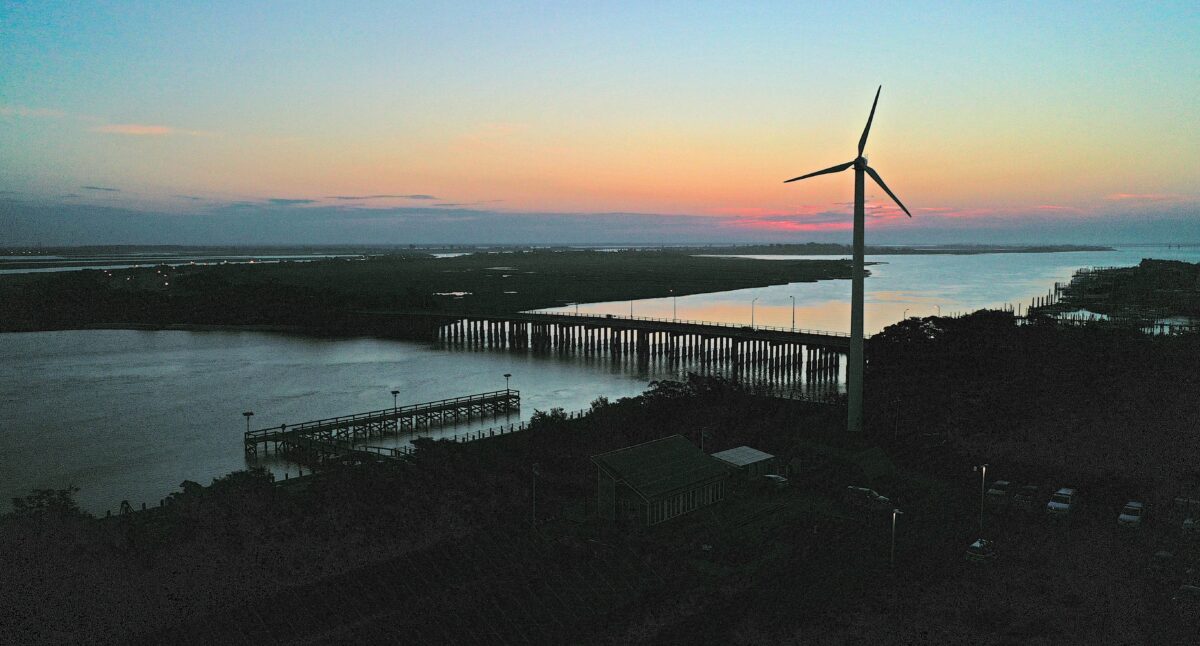


A large amount of wind and solar spending approved by Congress last year faces the prospect of getting stuck for years in the permitting process unless the government streamlines the regulations, according to a recent report by the Brookings Institution.
“Permitting of renewable energy generation and electric transmission projects in the United States is multi-layered and often extremely long,” says the February report.
The Inflation Reduction Act (IRA) signed last summer by President Joe Biden promises hundreds of billions of dollars in tax credits, loans, and grants for moving the country toward “clean energy.” On one hand, it subsidizes the buildup of wind and solar power generation, and on the other it subsidizes consumers’ ditching oil and gas to buy electric cars and heat pumps.
The problem is solar and wind farm projects, particularly large ones, take years to collect the plethora of local, state, and federal permits.
In addition, to make wind and solar work, the electric grid will need to be substantially expanded. Because wind and sunlight are most consistent in scarcely inhabited areas, such as prairies and deserts, the most efficient wind and solar farms would require new long transmission lines to connect them to the existing grid. A further expansion of the grid would be required to make it much more interconnected across the country to make up for the inconsistent nature of wind and solar.
Getting permits for building power lines, however, is even more complicated, especially for long lines that traverse multiple states.
Furthermore, the expansion of the power grid has slowed in recent years. If it doesn’t pick up its pace again, the IRA may actually lead to more coal and gas burning to power up all the new electric cars, according to last year’s report by Princeton’s ZERO Lab (pdf).
“If the U.S. is to achieve its climate ambitions and fully implement transformative legislation like the Inflation Reduction Act, Congress will also have to enable a massively accelerated build-out of clean energy infrastructure,” the Brookings paper argues.
It proposes a pack of measures that could speed up the permitting, particularly the Environmental Impact Statement (EIS) process, which commonly takes three years or more.
The authors propose that the government should create a map of the country that identifies areas where development would be unlikely to significantly impact the environment. Then, the relevant agencies should themselves prepare “programmatic” EIS reports in these “low-sensitivity” areas that have the biggest potential to attract “clean energy” development.
Then, Congress could impose “environmental review time limits for pre-designated low-sensitivity areas.”
If a developer comes with a project to such a “pre-designated” area, it would be required to produce a simpler EIS and if the government review takes too long, the project would be approved automatically.
Even if approved, the permitting process can be challenged in court by third parties. To prevent the projects from getting tied up in courts for too long, the authors propose funneling all such cases directly to the federal appeals court for the D.C. Circuit.
Most of these changes would require congressional action and that may be a problem. Sen. Joe Manchin (D-W.V.) proposed a somewhat different permitting reform last year only to run into bipartisan opposition.
Also, the Brookings report doesn’t quantify how much such a reform would speed up the projects, given that other parts of the permitting process can also take years.
“If the United States is to achieve its climate goals while minimizing the environmental impact of energy infrastructure projects, Congress will need to balance careful, targeted action to preserve the environmental benefits of the permitting process with the extensive clean energy build-out needed to advance meaningful efforts to address climate change,” the report concluded.
